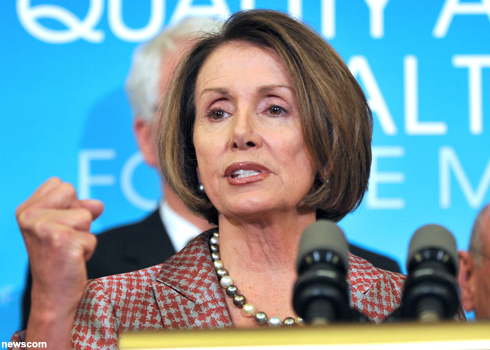Most of the time, the magic number for passing significant legislation in the House is 218–a simple majority of the lower chambers’ 435 members. So that’s the number House Speaker Nancy Pelosi is looking at to pass the Senate health care bill, right? Try 216.
Come March 8, when Rep. Nathan Deal’s (R-GA) resignation goes into effect–and barring any surprises–there will be four vacancies in the U.S. House: Deal’s seat, along with the seats of retired Reps. Robert Wexler (D-FL) and Neil Abercrombie (D-HI), and deceased Rep. John Murtha (D-PA).
The four empty seats brings the number of serving House members down to 431. Which means that–if everybody’s present and voting, a health care bill can pass the House on a paper-thin 216-215 margin. That may sound like good news for Pelosi–and in some ways it is. But recall that all three of those Democrats–Wexler, Abercrombie, and Murtha–were “yes” votes. She needs two fewer votes than she’d need if the House was fully seated. But she’s lost three.










